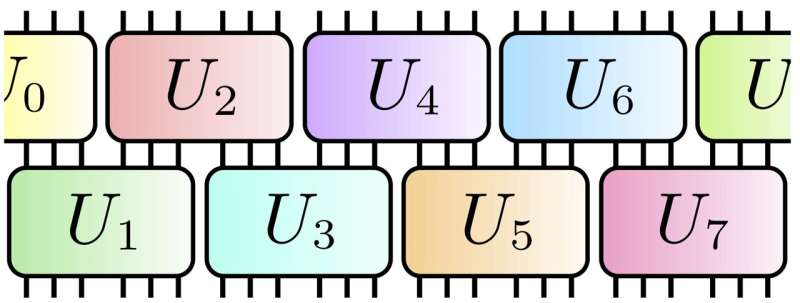
Understanding randomness is crucial in many fields, from computer science and engineering to cryptography and weather forecasting. It helps simulate real-world phenomena, design algorithms, and predict outcomes in uncertain situations. In the realm of quantum computing, randomness plays a pivotal role, but generating it typically involves a large number of operations. However, a recent breakthrough by Thomas Schuster and colleagues at the California Institute of Technology suggests that quantum computers can produce randomness much more efficiently than previously thought. This development could pave the way for faster and more efficient quantum computers.
Unlike classical computers that encode information in “bits” (either zeros or ones), the basic unit of information in quantum computing is the quantum bit or qubit. Arranging or shuffling these qubits in random configurations is one way scientists have demonstrated how quantum computers can outperform classical ones, a concept known as the quantum advantage. Shuffling qubits is akin to shuffling a deck of cards; the more you add, the harder it becomes and the longer the process takes. Additionally, excessive shuffling in the quantum realm increases the risk of disrupting the delicate quantum state of each qubit. Consequently, it was believed that only small quantum computers could handle applications reliant on randomness.
Breakthrough in Quantum Shuffling
The team at the California Institute of Technology has shown that these random qubit configurations can be produced with fewer shuffles. They achieved this by conceptualizing the division of qubits into smaller blocks and mathematically proving that each block could independently generate randomness. Their research, published in Science, demonstrated how these smaller qubit blocks could be “glued” together to create a well-shuffled version of the original qubit sequence. This approach suggests that randomly arranged qubit sequences could be used on larger quantum systems, potentially simplifying the construction of more powerful quantum computers for tasks such as cryptography, simulations, and other real-world applications.
“Our results show that several fundamental physical properties—evolution time, phases of matter, and causal structure—are probably hard to learn through conventional quantum experiments. This raises profound questions about the nature of physical observation itself.” — Thomas Schuster
Deeper Implications and Future Prospects
The researchers also believe their findings point to something even deeper. Namely, there may be fundamental limits to what we can observe in nature because quantum systems hide information incredibly quickly. This revelation raises profound questions about the nature of physical observation itself and could have far-reaching implications for the future of quantum research.
According to experts, the ability to produce randomness more efficiently could significantly enhance the performance of quantum computers, making them more viable for practical applications. This advancement aligns with ongoing efforts to harness the full potential of quantum computing, which promises to revolutionize fields such as cryptography, drug discovery, and complex system simulations.
The Road Ahead
As the field of quantum computing continues to evolve, the insights gained from this research could inform future developments and innovations. The ability to efficiently generate randomness is a crucial step toward realizing the full potential of quantum technologies. Researchers and industry leaders alike are optimistic that these advancements will lead to the creation of more powerful and versatile quantum computers.
This article, written by Paul Arnold and edited by Andrew Zinin, underscores the importance of independent science journalism. The reporting has been fact-checked and peer-reviewed to ensure accuracy and reliability. Readers are encouraged to support such journalism, which plays a vital role in disseminating groundbreaking scientific discoveries.







